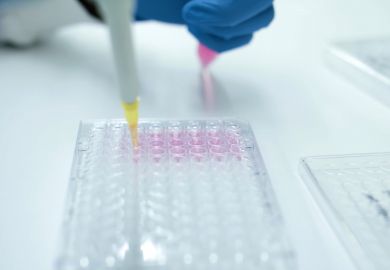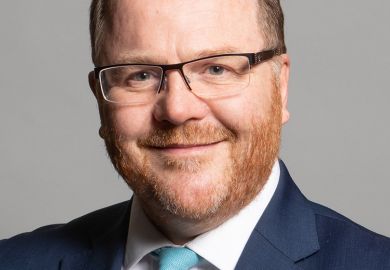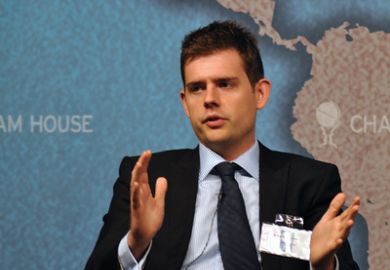The absence of a clear, overarching vision, poor communication and ambiguities in accountability are hampering the UK’s ambition to become a “science and technology superpower”, according to a new report.
The House of Lords’ Science and Technology Committee has picked holes in the country’s science strategy just as the Conservative Party elects a new leader; its chair, Baroness Brown of Cambridge, urged the next prime minister to take its recommendations seriously, warning that the government will otherwise fail to reach its targets.
While welcoming commitments such as an ambition to spend 2.4 per cent of gross domestic product on research and development by 2027, the report notes that there has been a lack of clarity on how these targets will be achieved. Businesses have also been left out of the loop, although much of the additional investment needs to come from the private sector, the committee concludes.
The March 2021 announcement that the UK intends to become a “science superpower” by 2030 has not been followed up with defined goals for what this means in practice, and none is due to be published until the end of 2022, the report says, adding that there is a risk such ambitions will be seen as “empty sloganeering” if not accompanied by metrics.
This aspiration is also being undermined by an “inconsistent approach” to international scientific collaboration, including the lack of association to Horizon Europe, and the government must take steps to rebuild its reputation as a reliable partner, it adds.
Peers criticise the failure to identify a clear remit for the new bodies that have been created – the National Science and Technology Council (NSTC) and the Office for Science and Technology (OSTS) – or outline how they are supposed to interact with existing organisations.
“Unclear targets and poor communication jeopardise the achievement of the government’s ambitions,” the report states.
Baroness Brown called on Liz Truss and Rishi Sunak – the candidates to replace Boris Johnson – not to water down the country’s science aspirations when in office.
But she said there was also a clear need “to move from making statements to a really sharp focus on delivering a strategy with clear and measurable outcomes”.
“There has been an awful lot of talking and not enough action so far,” Baroness Brown added.
She said that the best thing the new prime minister could do to demonstrate their commitment to this area would be to appoint a Cabinet-level science, technology and innovation minister, adding that it was “shocking” the country doesn’t currently have a minister for this portfolio at all.
“It is crucial there is a science minister present at Cabinet discussions,” she said. “So many of the big issues that we are dealing with have a really important science and technology element to them.”
The report welcomes the commitment that the prime minister will chair meetings of the NSTC but notes it had only met three times since it was established in July 2021, while the OSTS has “yet to publish any substantive documents or to reveal what it intends to do”.
Baroness Brown said clarity and understanding on the lines of accountability was needed “desperately”, while there were also concerns that UK Research and Innovation is “being pulled in so many different directions we are concerned it might lose focus in its core mission”.
Cross-bench peer Lord Krebs, a member of the committee and a former chief executive of the Natural Environment Research Council, said that without an understanding of how the layers of government working in this area fitted together “there is a danger that the UK may become a bureaucracy superpower instead of a science superpower”.
Asked whether the UK should simplify the number of bodies, Lord Krebs said it was not a question the committee addressed “but it does look quite bureaucracy-heavy”.
He criticised the two Tory leadership candidates’ “virtual silence” on investment in science and technology, adding: “There clearly is an education job to do there.”
A government spokesperson said its commitment to cementing the UK's position as a science superpower had been "backed up by record levels of investment."
They reiterated the country's desire to associate to the EU's programmes including Horizon but said if this was not possible "soon" then "we are committed to introducing a comprehensive alternative programme of international science, research and innovation collaborations.”
Register to continue
Why register?
- Registration is free and only takes a moment
- Once registered, you can read 3 articles a month
- Sign up for our newsletter
Subscribe
Or subscribe for unlimited access to:
- Unlimited access to news, views, insights & reviews
- Digital editions
- Digital access to THE’s university and college rankings analysis
Already registered or a current subscriber?








